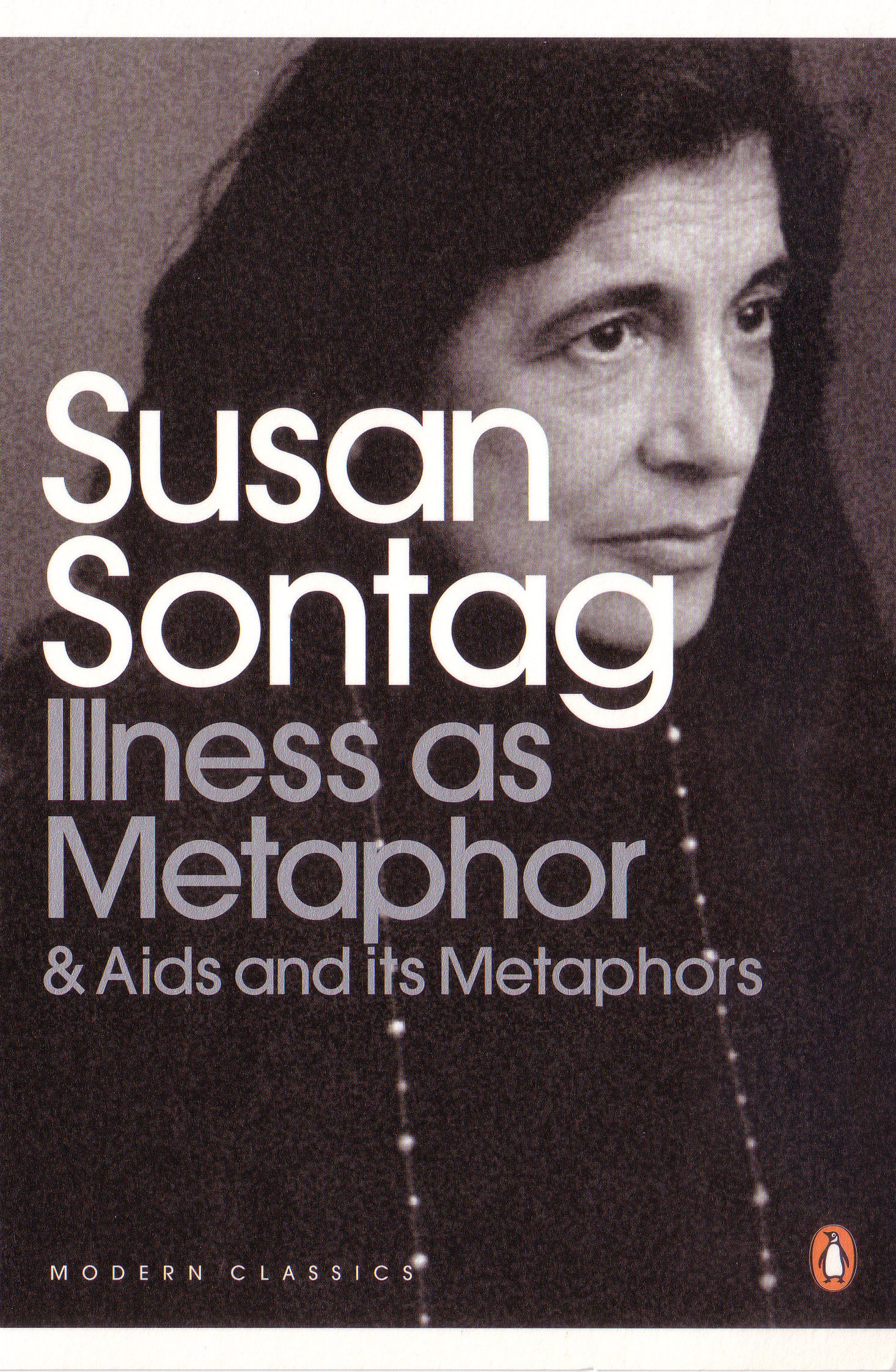Illness as a metaphor: by Susan Sontag
Subject: cancer, tuberculosis, disease, social stigma, metaphor
Publisher: Farrar, Straus & Giroux
Publication date: 1978
Pages: 87
ISBN: 978-0-374-17443-9
Illness as Metaphor is a 1978 work of critical theory by Susan Sontag, in which she challenged the victim-blaming in the language that is often used to describe diseases and the people affected by them.
Teasing out the similarities between public perspectives on cancer (the paradigmatic disease of the 20th century before the appearance of AIDS), and tuberculosis (the symbolic illness of the 19th century), Sontag showed that both diseases were popularly associated with personal psychological traits. In particular, she said that the metaphors and terms used to describe both syndromes lead to an association between repressed passion and the physical disease itself. She wrote about the peculiar reversal that "With the modern diseases (once TB, now cancer), the romantic idea that the disease expresses the character is invariably extended to assert that the character causes the disease—because it has not expressed itself. Passion moves inward, striking and blighting the deepest cellular recesses."
Sontag said that the clearest and most truthful way of thinking about diseases is without recourse to metaphor. She believed that wrapping disease in metaphors discouraged, silenced, and shamed patients. Some other writers have disagreed with her, saying that metaphors and other symbolic language help some affected people form meaning out of their experiences.

In this reading, Sontag makes a claim that "illness is NOT a metaphor" by using tuberculosis (TB) and cancer as two guiding examples. The writer extensively compares and analyzes historical mythology surrounding these two fatal diseases, and shows two extreme and catastrophic ends of using illness as a metaphor. I particularly found it interesting to read the section about how TB was once romanticized in a cult-like fashion influenced by the fashion industry, popular figures, and aristocratic looks. As an extension to such romanticized notions, I personally also witnessed a lot of examples of fatal illnesses being used as a test of moral character in various movies and novels. In contrast, in today's society, we tend to blame patients as the cause of diseases like cancer, listing behaviors like overeating, overdrinking, or even overworking as the potential reasons. Despite historical changes to the attitudes surrounding TB and cancer, both diseases are still feared and not openly talked about until the present day, which creates a toxic culture of regarding death as something to be hidden. As humans, we inherently are born with curiosity, which could make the world of the unknown scary and somewhat fearful. Not understanding the origin of certain diseases, having no cure or remedy, and experiencing death all share the fact that there is no concrete answer to all the questions that could arise. However, as the conclusion of this essay suggests, I hope our generation can create a healthier culture of approaching these subjects and foster a more sustainable way to educate and prepare ourselves for death and illnesses.
- reflection written by Yunni Cho
